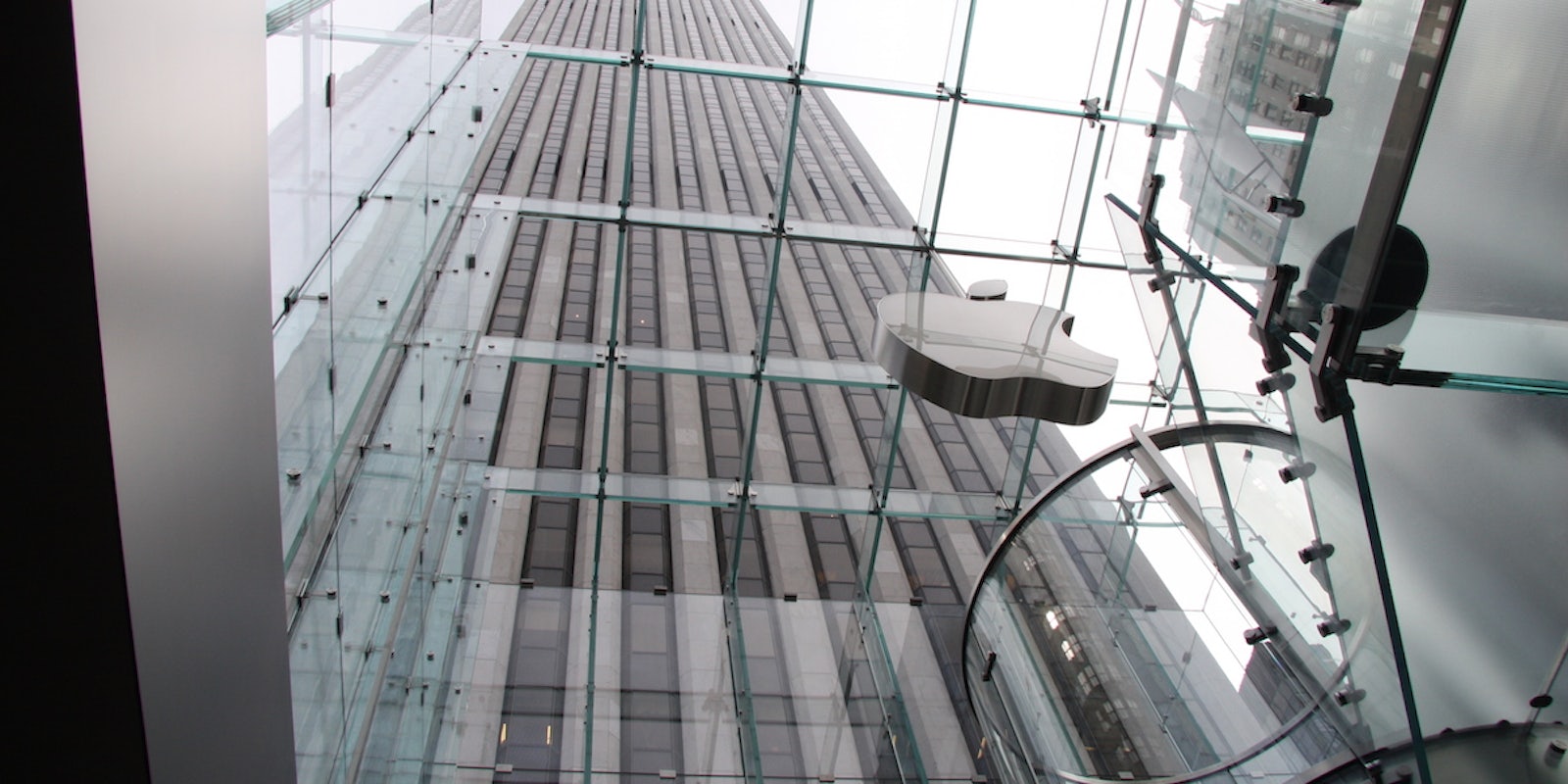Privacy activists, furious at a court order issued Tuesday that compels Apple to break into an FBI suspect’s iPhone, will stage nationwide protests as early as next week.
Activists plan to gather outside at least three of Apple’s brick-and-mortar stores next Tuesday to protest the FBI’s efforts to bypass default encryption measures on iPhones.
“They’re exploiting the tragedy in San Bernardino to push that agenda.”
In a crucial victory for the government, a federal judge in central California ordered Apple to bypass the security features on an iPhone 5c allegedly used by San Bernardino shooting suspect Syed Rizwan Farook. Farook and his wife, Tashfeen Malik, shot and killed 14 people on Dec. 2, seriously injuring 22 others, in the deadliest rampage killing in the U.S. since the 2012 Sandy Hook Elementary School massacre.
The FBI says it’s incapable of accessing the data on Farook’s iPhone 5c because of Apple’s security, and that it requires, in essence, a “master key” to access its data. Officials have theorized the phone data may be useful in establishing a link between the shooters and the Islamic State overseas. Magistrate Judge Sheri Pym agreed with the FBI, and ordered Apple to build customized software—also known as malware—which can be used by law enforcement to defeat Apple’s own security measures.
BREAKING: Nationwide rallies at Apple stores to oppose FBI demand for backdoor into iPhone https://t.co/QR4adNbJQ9 pic.twitter.com/rDoqjg6S4A
— Fight for the Future (@fightfortheftr) February 17, 2016
Fight for the Future, the digital-rights group behind next week’s protests, opposes what it calls the “unlawful and reckless” order issued in the California court, which was similarly described in a statement by Apple CEO Tim Cook as the U.S. government threatening the personal safety of American consumers.
Fight for the Future’s campaign manager, Evan Greer, accused the FBI of “frothing at the mouth,” hoping for an opportunity to undermine encryption and “enable more sweeping surveillance.”
“It’s shameful,” said Greer. “They’re exploiting the tragedy in San Bernardino to push that agenda.”
In a message to its customers, Apple said it opposed the order to “hack [its] own users” because of “implications far beyond the legal case at hand.”
The technical changes the @FBI demands would make it possible to break into an iPhone (5C or older) in a half hour. pic.twitter.com/v6GeFXXXBC
— Edward Snowden (@Snowden) February 17, 2016
“The government suggests this tool could only be used once, on one phone. But that’s simply not true,” Apple said. “Once created, the technique could be used over and over again, on any number of devices. In the physical world, it would be the equivalent of a master key, capable of opening hundreds of millions of locks — from restaurants and banks to stores and homes. No reasonable person would find that acceptable.”
Protests outside Apple stores have already been scheduled next Tuesday at 5:30pm in Boston, New York City, and San Francisco, according to Fight for the Future’s event page.
Photo via Brian Snelson/Flickr (CC BY 2.0)


